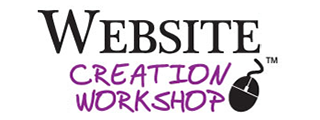You’ve probably heard the term “content marketing.” Or maybe you’ve heard the phrase, “Content is king.” For entrepreneurs and small business owners, content marketing can be a powerful way to grow your business. It can help you connect with your target audience and boost sales. But exactly what is content marketing? And how do you do it?
Content Marketing is Education
According to The Content Marketing Institute, it’s defined as:
“A strategic marketing approach focused on creating and distributing valuable, relevant, and consistent content to attract and retain a clearly-defined audience — and, ultimately, to drive profitable customer action.”
In short, content marketing is about providing useful information to your audience. It’s relevant and not pushy like direct sales messages.
Examples include blog posts, videos, social media updates, infographics, and podcasts.
Content Marketing vs. Traditional Marketing
Traditional marketing interrupts people with messages, such as pop-up ads, banners, embedded ads, cold calls, commercials, and direct mail.
Content marketing takes a more subtle approach, sharing relatable content that speaks to people’s needs. Think of it as hosting a dinner party, building rapport, and providing value. The goal is to attract your ideal customers, engage them, and get them into your marketing funnel.
Good Content is an Expectation
Think about it: What do you do when you have a problem? You might call a friend or family member, but often, you’ll turn to Google or YouTube to find answers.
Today, people expect to find rich content about the products or services they’re considering. In the past, advertisements provided valuable information. Now, consumers learn about products from blog articles and social media posts. They expect companies to generate great content that helps them make informed decisions.
Video on ‘What is Content Marketing’?
Content marketing boosts awareness better than ever through social networks and emails. Businesses no longer wait for consumers to search for products on Google. Instead, social media and email marketing create awareness, often showing people a need they didn’t know they had.
Watch this quick video below that explains what content marketing is in visual pictures…
Benefits of Having a Content Marketing Plan
1) Attract and Engage Your Target Audience
Creating valuable and relevant content can draw in potential customers interested in your business. This increases your online visibility and helps you reach a broader audience. In addition, engaging content keeps your audience interested and encourages them to interact with your business through comments, shares, or direct inquiries.
2) Builds Trust and Credibility
When was the last time you watched a commercial and actually trusted everything you saw and heard? I’m going to go out on a limb and say, “Never.” However, in today’s world, trust is everything.
The ultimate goal is getting someone to trust the product or service and the business. While trust is certainly established after successful transactions, the first line of trust is often formed based on the content that people find (or don’t find).
Building trust and credibility with your audience will strengthen customer relationships, encourage loyalty, and increase word-of-mouth referrals.
3) Establish Yourself as an Expert
Consistently providing helpful and informative content demonstrates your expertise and shows that you understand your customers’ needs. This helps establish your business as a reliable and knowledgeable resource.
Remember, the key to content marketing is providing helpful information so that when someone has a need, immediate or future, they think of you!
Different Strategies for Content Marketing
There are many different ways to connect with your target audience through content marketing, each with its pros and cons. Blog articles boost search engine optimization (SEO). Videos and podcasts are engaging and easily shareable.
Social media posts are great for quick updates and live chats. They let you stay in touch with your audience and quickly answer their questions. Emails are effective for keeping your audience informed. They also help build lasting relationships by providing personalized content and exclusive offers only to subscribers.
Getting Started with Content Marketing
To get started, understand your target audience and identify the types of content they like. Where do they hang out? Facebook? If so, what Groups? Instagram or TikTock? If they’re on social media, create engaging posts and interact through stories and comments.
If your audience prefers in-depth guides, blog articles and emails may be more effective. Or, if your target audience has more time to listen to content than read it, consider starting a podcast.
Experiment with different mediums and see where and how you can best connect with your target audience.
Most importantly, pick a strategy that you can consistently execute! And always include a call to action at the bottom of your content. For example, “subscribe to my newsletter,” “download my free ebook,” “share this podcast,” etc.
Final Thoughts…
Content marketing promotes your business by offering valuable content instead of sales pitches. It’s an effective way to build your business by giving to others instead of direct selling.
This method takes time, but by consistently delivering useful and relevant information, you’ll see your business grow. And expect your content marketing strategy to evolve over time. As technology changes, your strategy will change, too.
Now it’s your turn to start something. Write a blog article, create an email newsletter, or set up a Facebook page. If you don’t already have a website, that’s a great way to get started with content marketing.
I can teach you how to build a website – no tech skills are required. The next Website Creation Workshop™ opens this fall. Sign up to get notified here. https://websitecreationclass.com



































Nice job explaining the benefits of content marketing Christina!
And I couldn’t agree more with assessment, building trust, especially online,
is critically important.
Because without it, you definitely won’t be experiencing very much success!
Thanks for taking the time to effectively define, both what “content marketing”
is, and how it can potentially be extremely beneficial to us!